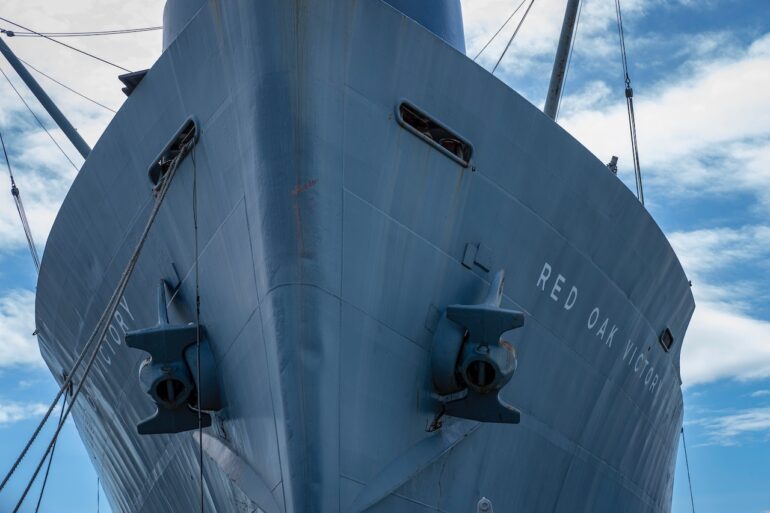By Linda B. Oliver
In 1990, I was selected to be the Deputy General Counsel at the Naval Research Laboratory (NRL), which was – and still is – the premier advanced research organization of the United States Department of the Navy. I was especially pleased with the offer because I would have a chance, for the first time, to work with top women engineers.
One of these talented women, whom I will call Gloria, approached me several weeks after I reported for duty in my new role. She wanted my help as a woman and a legal professional.
With some embarrassment and a great deal of hesitation, Gloria related to me that she and her supervisor had flown to Puerto Rico, where the Navy has an extensive underwater acoustic range, in order to make mathematical adjustments to the algorithms in use. The second night, while her supervisor was driving the two of them back to the hotel after work, he took several quick turns and then stopped the car in front of a bar in a very sketchy part of San Juan. Gloria’s supervisor then snatched her purse and told her she could either get out of the car right there, without her purse – disoriented, lost, and in front of a raucous bar – or she could perform a sexual act on him. Gloria made a decision she later very much regretted.
A few weeks later, the underwater acoustic range needed more help. Gloria told her supervisor she did not want to return to Puerto Rico. He told her that she had to go; he was entitled to send her where she was needed. He said he was disappointed that she was a quitter, and not a team player who would support the mission. He said she deserved to be fired. On the other hand, he said, she was a talented engineer. Perhaps the best solution was to have her transferred to a different organization in the Navy.
Gloria left her supervisor’s office and came straight to mine. I agreed with Gloria that she had become a problem for her supervisor and that a transfer controlled by him was not likely to enhance her career. I advised her that his supervisor had a duty to make her workplace safe and recommended she make an appointment to discuss possible solutions. I said I would go with her if she wanted me to.
She believed Gloria and terminated Gloria’s supervisor, who hired a lawyer to appeal his termination. An administrative law judge was assigned to the case and set hearing dates.
Why had the supervisor’s supervisor believed Gloria? Did she have clues of prior similar behavior? I began to wonder if the supervisor’s actions were too practiced for this to be his first assault.
I was convinced Gloria was telling the truth but I didn’t know how to prove her case at the hearing. She was my only witness and the assault happened months earlier, so too much time had passed for a physical exam to yield evidence. The supervisor initially testified that nothing had happened, just as he had when his supervisor had confronted him about Gloria’s accusation.
I asked for help from the NRL personnel office. We examined the records of each woman engineer who had previously worked for Gloria’s former supervisor and discovered that each of the seven women had either resigned or been reassigned. A surge of hope swept through me, and I began to track down each of them.
At first, not one of them wanted to speak to me. After several weeks, three of them agreed to meet me individually for coffee. Over time, each of them related a story similar to Gloria’s. Unfortunately, none of them wished to testify. One had never shared her humiliation with her husband; another was in a custody fight with an ex-husband and did not want to risk the information being viewed detrimentally; the third female engineer had made a new start and refused to look back.
In a last attempt, I asked each of them if they would be willing to meet with me and the other two victims to share their stories. Despite agreeing that the meeting was a helpful closure for them, still none of them had changed her mind about testifying.
I woke at 5:00 a.m. the morning of Gloria’s hearing. It didn’t start until eleven, but I couldn’t sleep. I had no case. I would be professionally embarrassed. At 8:00 a.m. my two children went off to school. My husband had left for work two hours earlier. At 8:15 our telephone rang and I answered. The engineer who was still married had decided the previous night to file for divorce and no longer felt she had to keep the assault a secret. She had called the “new start” woman, who was a personal friend, and convinced her they owed it to other women to ensure that justice would be done. The way to stop abuse was to hold people in power responsible for abusing that power, she said.
A few hours before the hearing, I suddenly had three witnesses who agreed to relate identical stories of assault and harassment. Despite the upheaval in their lives and the risks of coming forward, they stood up to a bully at the hearing. The court upheld his termination.
My supervisor, the NRL Counsel, told me that as far as she knew, no male civilian Department of the Navy employee had ever been fired for sexual assault or harassment. Although the opinion affirming the disciplinary action was unpublished, the facts of the case spread like wildfire throughout the Office of General Counsel community. An underpinning of the philosophy of Navy discipline began to change.
Our nation needs women to fill demanding national security roles. Doing so makes us stronger. We represent half our country’s talents and capabilities. I’m grateful I was able to play a pivotal role in enhancing that power for the Navy.
Linda B. Oliver is a member of the bar of the United States Supreme Court and is licensed to practice law in six states. She served in the Department of Defense Office of Small Business Programs for a decade, where she established and enforced policies encouraging the DOD to provide opportunities for small businesses to compete successfully for Defense contracts. Previously, Linda served in the White House Office of Management and Budget and worked in federal procurement law at the Naval Research Laboratory in Washington, D.C. and the Pentagon. Linda was a member of the Senior Executive Service for sixteen years.
Linda has received multiple awards throughout her career including the Women in Government Glass Ceiling Breaker award, the Presidential Rank Award of Meritorious Executive, the Secretary of Defense Meritorious Civilian Service award, the Department of the Navy Superior Civil Service Medal, the Secretary of Commerce Small Business Advocate of the Year award, and the Native American Public Advocate of the Year award. She holds a J.D. from the University of San Diego School of Law and an A.B. from the Connecticut College for Women.


